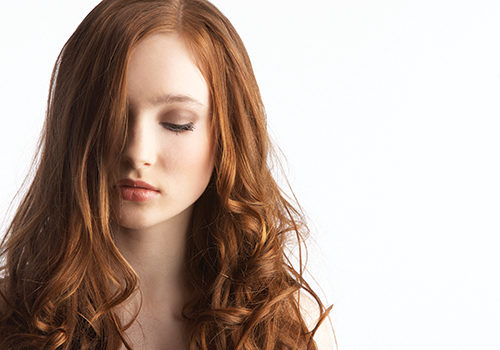From time to time, it happens to everyone: dry, frizzy hair. Many consumers would love to have shiny, healthy hair and are willing to pay a pretty penny to get it. However, before your shoppers run to the closest beauty store for a pricey synthetic hair product, offer these natural oils that breathe life into damaged hair and leave it silky smooth—and maybe, even smelling like coconuts.
Tips for At-Home Use
Shoppers will reap some benefits when using daily products such as shampoos, conditioners and leave-in sprays that contain oils among their other ingredients. But many shoppers love going straight to base oils. Some products are available in your grocery aisles, but other formulations are developed with hair conditioning in mind. Shoppers can use oils individually or create a multi-ingredient hair mask from several of their favorite oils. If your store has access to an HABA specialist, provide hair treatment recipes that shoppers can mix up with ingredients from your aisles.
Once ready to apply, it’s important to note that shoppers need at least one to two hours to condition with oils. The longer the oil stays in the hair, the more effective it will be. Most treatments work well when shoppers apply it (concentrating on the ends), wear a shower cap and leave in overnight. Experts recommend shampooing out before leaving the house to avoid a greasy appearance.
Five Hair Oils for Your Shelves
1. Coconut oil. This oil has been known to help reduce protein loss that damages hair and can also support a full, healthy head of hair. Shoppers may wonder why coconut oil is so good for hair. The answer is in the chemical structure of the oil. Because coconut has a low molecular weight, it can penetrate hair, cutting through to the core of strands and conditioning them from the inside out. Most products simply coat the surface of strands (1).
The fatty acids in oil bind to proteins of hair and protect roots and strands (2). This is part of how it helps prevent protein loss, the key reason why hair becomes dry and damaged in the first place (2).
Coconut oil is rich in lauric acid, vitamin E, vitamin K, iron and other vitamins and minerals, which can boost healthy hair and scalp that are moisturized and flake free (2). In fact, some believe coconut oil also supports healthy hair growth.
Unlike other oils, coconut oil often comes in a solidified form and is most effective when warmed up before using. Depending on hair length, one-quarter to one-half a teaspoon is all that is needed. An even smaller amount can be used simply to tame frizz and fly-aways while styling (2).
2. Argan oil. This vitamin E-rich oil is often used as a conditioning treatment and to tame frizz (3). It is said to be a good moisturizer for dry hair or flaky scalp. It is said to absorb quickly and not leave any residue behind, making it suitable as a leave-in conditioner. Some research also suggests it can promote healthy hair growth and a moisturized scalp, with just one to three drops (4). Even more can be used as an overnight treatment to help those with dry, brittle hair or those with a dry, flaky scalp.
3. Extra-virgin olive oil (EVOO). Like many other oils, EVOO helps promote scalp health, but it can also support healthy circulation and fight off bacteria. Massaging one’s scalp and hair with EVOO leaves hair shiny. EVOO is rich in vitamins A and E, which help protect hair’s keratin and promote healthy hair growth by removing sebum that block hair follicles (5).
4. Avocado oil. This oil contains proteins, healthy fats, amino acids and vitamins A, D, E and B6 that help rejuvenate damaged and dry hair. It is said to leave hair moisturized when used as a deep conditioner, and offers biotin for strengthening (6, 7).
5. Pomegranate seed oil. For those that tend to have fine or thin hair, pomegranate seed oil may be one of the best treatments to try. The oil contains high levels of punicic acid, an anti-inflammatory omega-5 that revitalizes hair, allowing it to look thicker and shinier. Pomegranate seed oil is always great for protecting against chemicals and environmental damage (like that caused by the sun). This hair-strengthening oil is also rich in vitamins B and C and promotes elasticity (8).
No matter which they pick, shoppers will strike oil with these products. WF
References
1. S. Romanowski, “Why Coconut Oil Is Amazing for Your Hair,” Self, April 10, 2012, www.self.com/flash/beauty-blog/2012/04/why-coconut-oil-is-amazing-for, accessed Feb. 25, 2016.
2. “5 Best Uses of Coconut Oil For Hair,” http://draxe.com/coconut-oil-for-hair, accessed Feb. 25, 2016.
3. S. Romanowski, “Should You Be Using Moroccan Oil,” Feb. 7, 2012, www.self.com/flash/nutritionnews/2012/02/should-you-use-moroccan-oil, accessed Feb. 25, 2016.
4. “Argan Oil’s Benefits for Skin and Hair,” http://draxe.com/argan-oil-benefits-skin-hair, accessed Feb. 25, 2016.
5. R. Moss, “Out of the Frying Pan: Caring for Hair With Olive Oil,” May 20, 2013, www.elle.com/beauty/hair/tips/a13823/olive-oil-hair-treatments-products, accessed Feb. 25, 2016.
6. www.elle.com/beauty/makeup-skin-care/tips/a12951/benefits-of-avocado-oil, accessed Feb. 25, 2016.
7. C. Wischhover, “Is Avocado Oil the New Coconut Oil?” Sept. 17, 2014, www.elle.com/beauty/makeup-skin-care/tips/a12951/benefits-of-avocado-oil/accessed Feb. 25, 2016.
8. Badger Co., www.badgerbalm.com/p-495-seabuckthorn-hair-oil-for-all-hair-types.aspx, accessed Feb. 25, 2016.
Published in WholeFoods Magazine April 2016









